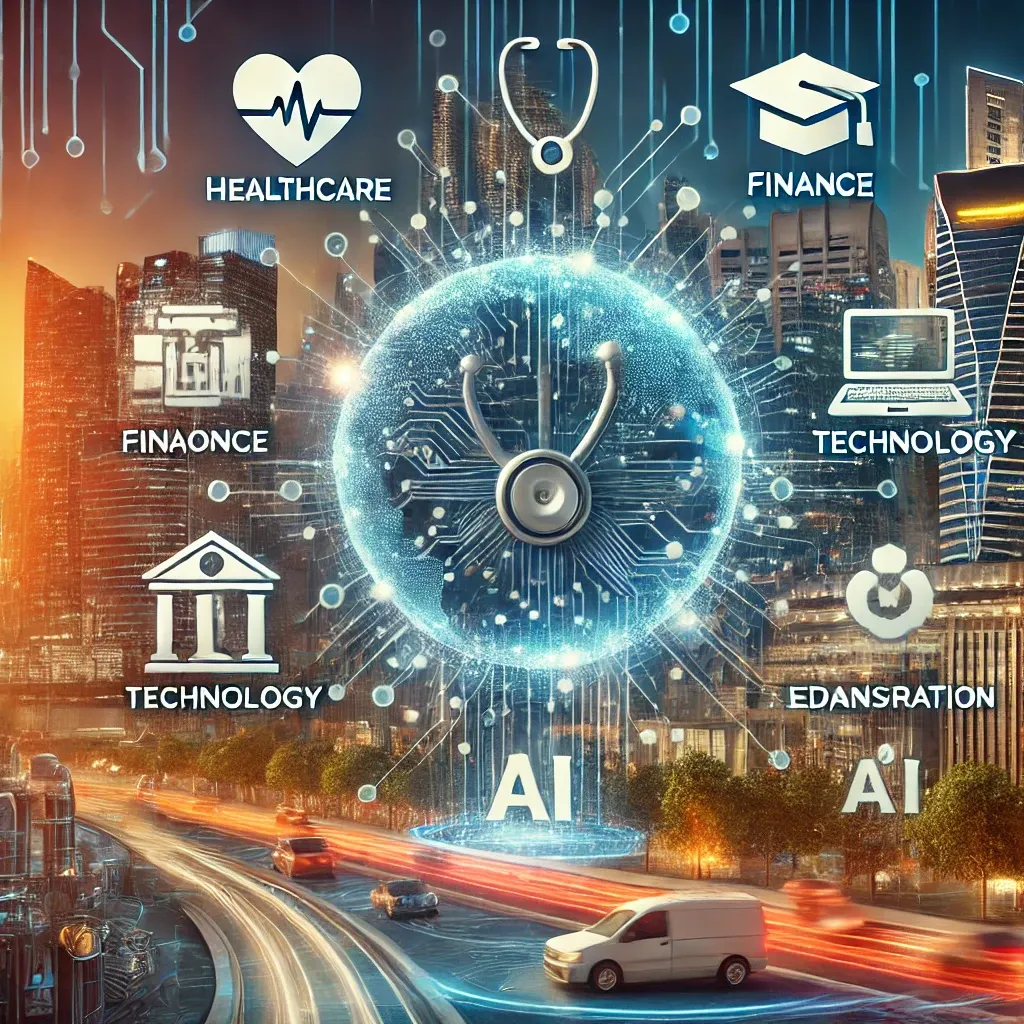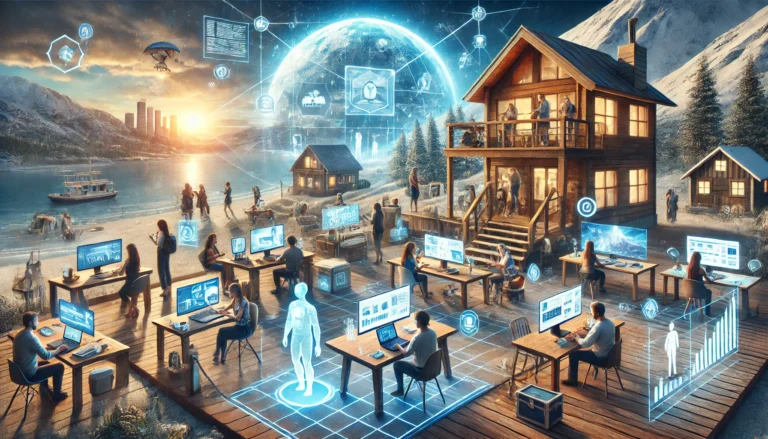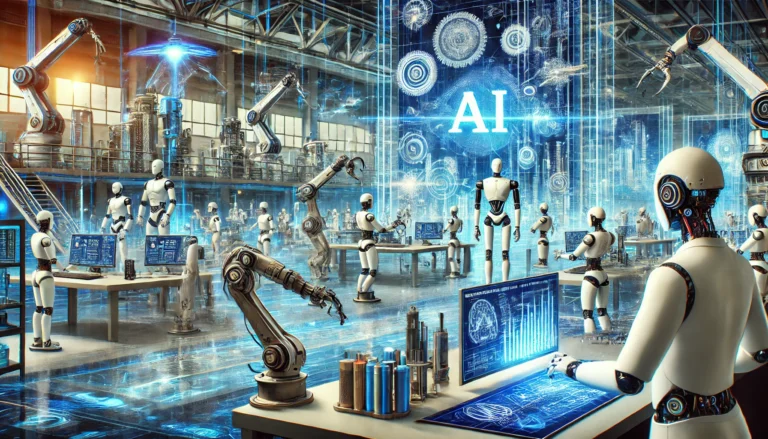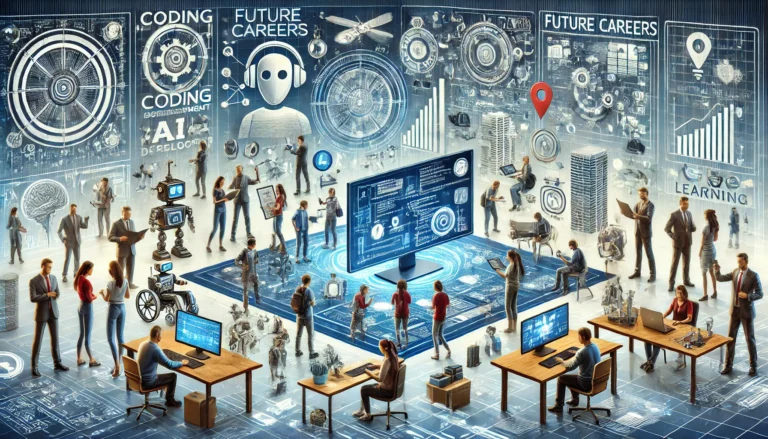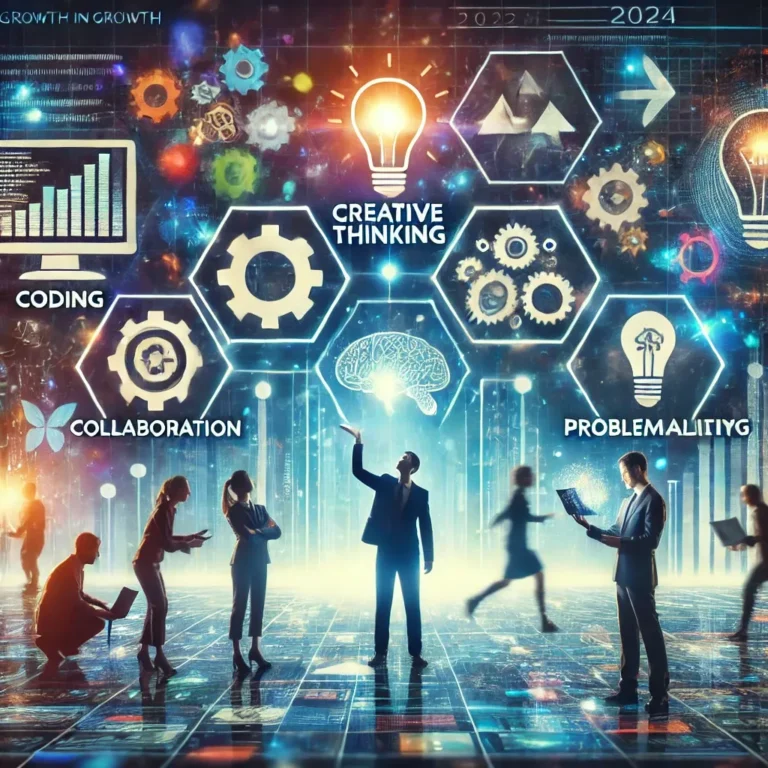AI Jobs in the Future: Sectors with the Most Promising Growth
Future AI Jobs: Industries that will see the highest growth
Artificial intelligence capability to replicate human cognitive tasks is increasingly inspiring, re-imagining and changing industries around the world as they usher in a new era of how enterprises function and people work. AI has big implications for the state of jobs, and companies acquiring this technology will see new positions rise as other traditional roles may become obsolete. This analysis sheds light on the sectors with prospects of substantial AI-related job growth, as detailed in this article.
AI in the Current Job Market
With machine learning (and derivatives), natural language processing, computer vision etc., AI has already found its way into many industries, making it easier to automate routine tasks and expedite decision-making processes, improving efficiency levels. The integration mentioned above has created a huge requirement for professionals who are capable of creating the AI systems and at the same time implement, manage, and maintain them.
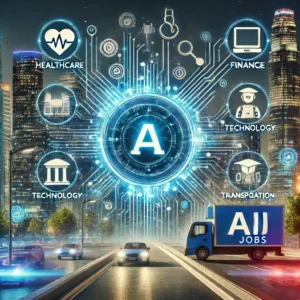
Key Statistics:
The AI market is projected to grow by 36.62% CAGR during the forecast period 2021-2025, and it will reach a total size of $190.61 billion in global terms by the end of this projection period.
According to a World Economic Forum report, AI is expected to produce 58 million new jobs by the year 2022.
Best AI Career Prospects Across Sectors
1. Healthcare
AI in healthcare is revolutionizing patient care, diagnostics, and treatment planning. The industry is seeing the use of AI to analyze healthcare data, predict patient outcomes, and tailor treatment protocols.
Key Roles:
- Medical Data Analysts – Someone who uses complex medical data to enhance patient outcomes.
- Specialists developing algorithms for early disease detection – AI-based Diagnostic Developers
- Robotic Surgery Specialists: Skilled professionals at operating and upkeep AI-powered surgical robots.
Challenges:
- Promoting data privacy and security.
- Integrating AI Systems into Healthcare Infrastructure
2. Finance
AI is fast penetrating into the financial sector with the usage of AI in fraud detection, risk management, and personalized banking services. Detection and prevention of fraud- AI algorithms are used to trace deviations, predict market trends, and optimize investment tactics.
Key Roles:
- Quantitative Analysts: Traditional professionals who meddle with AI for modeling finances.
- AI Risk Managers (Experts who manage risks with finance applications of AI)
- Chatbot Developers – Experts making AI-powered customer service products.
Challenges:
- Limited innovation vs. Regulatory compliance requirements
- The removal of biases from AI models that can influence financial decisions.
3. Information Technology
AI is one of the most disruptive technologies we are seeing, and it uses IT technology to provide infrastructure and expert skills. Even IT professionals are not left behind in the revolution that now ranges from developing AI software to cloud services maintenance.
Key Roles:
- Engineers who write AI software: Developers creating applications and systems with some level of intelligence.
- Data Scientists: Subject matter experts who drive AI solutions by analyzing data.
- Cloud Engineers: Professionals who manage AI workload on the cloud platform.
Challenges:
- Scaling and robust AI systems
- Cybersecurity Risks in AI Applications
4. Manufacturing
Predictive maintenance, quality control, and supply chain optimizations are reshaping the manufacturing industry with AI. For example, AI tools are employed in smart factories to track machine conditions and predict potential failures or improved production processes.
Key Roles:
- Industrial Data Scientists: Someone who specializes in analyzing production data and optimizing processes.
- AI Maintenance Engineers: Developing predictive maintenance algorithms
- Supply Chain Analysts: Professionals incorporating AI to streamline supply chains.
Challenges:
- Integrating machine learning with outdated factory systems
- Enhancing the accuracy and reliability of AI-based predictions
5. Retail
AI is ruling the retail sector by providing personalized and better shopping experiences to customers. AI-powered recommendation engines, virtual shopping assistants, and automated checkout systems are increasingly commoditized.
Key Roles:
- E-commerce Data Analysts: Professionals analyzing data related to online shopping.
- AI Retail Strategists: Creating AI-Powered Marketing Strategies
- AI-Powered Inventory Keepers: Professionals who control stock levels using AI.
Challenges:
- Securing customer trust with data.
- Dealing with the high costs of AI integration
6. Transportation and Logistics
Autonomous vehicles, route optimization, and predictive maintenance are increasing efficiency and safety in transportation using AI. Self-driving cars, drones, and AI-driven logistics platforms are changing the industry.
Key Roles:
- Autonomous Vehicle Engineers: Developing self-driving technologies
- Logistic Data Analysts: Optimizing routes and supply chains using AI
- AI Safety Specialists: Ensuring the safety and reliability of AI systems in transportation
Challenges:
- Navigating Regulatory and Ethical Concerns.
- Ensuring the safety and reliability of Autonomous Systems
7. Education
AI is making learning more personalized, sorting out administrative tasks, and improving student engagement. AI-driven educational platforms, virtual tutors, and adaptive learning systems are becoming common.
Key Roles:
- Education Data Scientists: Professionals who understand learning behavior and context.
- AI Curriculum Developers: Creating learning materials enriched with AI
- Virtual Tutor Developers: Developing AI-based tutoring systems
Challenges:
- Ensuring equal access to AI-Powered Education
- Addressing privacy concerns about student data.
8. Energy
AI is transforming the production, delivery, and consumption of energy by enabling smarter grids, predictive maintenance, and smart building solutions. AI applications are proving to be cost-effective, efficient, and environmentally friendly.
Key Roles:
- Energy Data Analysts: Analyzing energy usage data
- AI Energy Solutions Developers: Experts creating intelligent energy solutions
- Predictive Maintenance Engineers: Maintaining energy infrastructure to increase reliability.
Challenges:
- Integrating AI with existing energy systems
- Innovating while staying within environmental and regulatory bounds.
Some Future AI Job Skills
In the fast-growing world of AI, professionals require a combination of technical and non-technical skills. Core competencies for these tasks include:
Technical Skills:
- Programming Languages: Proficiency in Ruby, Java, Python, and R
- Analytics: Ability to analyze large datasets using tools like SQL, Hadoop
- Machine Learning: Knowledge of algorithms and frameworks like TensorFlow, PyTorch
- AI Ethics: Understanding AI Bias and considering ethical implications
Soft Skills:
- Problem-solving: Tackling complex problems creatively.
- Communication: Explaining technical concepts to non-technical individuals
- Flexibility: Adapting to new technologies.
Learning & Development Opportunities
Pathways to an AI Career:
Formal Education:
- Bachelor of Science: Experience in Computer Programming, Engineering, or related fields.
- Master’s Degree: Specialization in AI, machine learning, or data science
- Ph.D.: For research-oriented careers in academia or advanced industry roles
Certifications & Online Courses:
- AI and Machine Learning Certifications: Offered via platforms like Coursera, edX, etc.
- AI Technology Tools: Bootcamps and workshops focused on AI technologies
Professional Development:
- Conferences and workshops: Stay current with industry trends.
- Networking: Engage with professional networks and AI communities
The Future of Employment in AI
AI is expected to transform the job market, creating more opportunities across various sectors. However, it also poses certain challenges that need to be addressed to ensure equitable growth.
Opportunities:
- Innovation: AI will enable the creation of new industries and transformation of existing ones.
- Work and Resource Efficiency: Increased efficiency and cost savings across sectors.
- Personalization: More personalized experiences in healthcare, shopping, and other areas.
Challenges:
- AI Ethics: Addressing bias and transparency in AI.
- Regulatory Compliance: Navigating the complex regulatory environment of AI applications.
- Workforce Transition: Managing workforce transitions, including reskilling and upskilling efforts.
Conclusion
AI is poised to transform industries and create new job opportunities. The demand for skilled AI professionals will increase as businesses and individuals adapt to this new era. Understanding growth sectors and acquiring necessary skills will enable professionals to seize opportunities as AI evolves. Continuous learning and ethical considerations will play a vital role in realizing AI’s potential while mitigating its risks. This promises a future filled with exciting and innovative job prospects.

